

What is Mindful Eating and Why Should you Practice it?
It’s no secret that there’s a ton of health advice out there. No matter who you are or where you live, you’ve probably come across headlines and articles that give tips on what you should and shouldn’t be eating, what supplements to try, and so much more.
What if I told you that some of the best health advice has nothing to do with WHAT you eat but HOW you eat?
I’m referring to mindful eating. This may be a term you have heard of but may not know exactly what it means or what it involves.
If that describes you, read on to learn why this often ignored concept can play such an important role in your overall health.
What is Mindful Eating?
Let’s first be clear that mindful eating is not a diet. It has nothing to do with what you eat, and its purpose is not specifically for weight loss or any other health modification (though those things may naturally happen as a result).
According to the Center for Mindful Eating, mindful eating involves several different habits that affect how you eat.
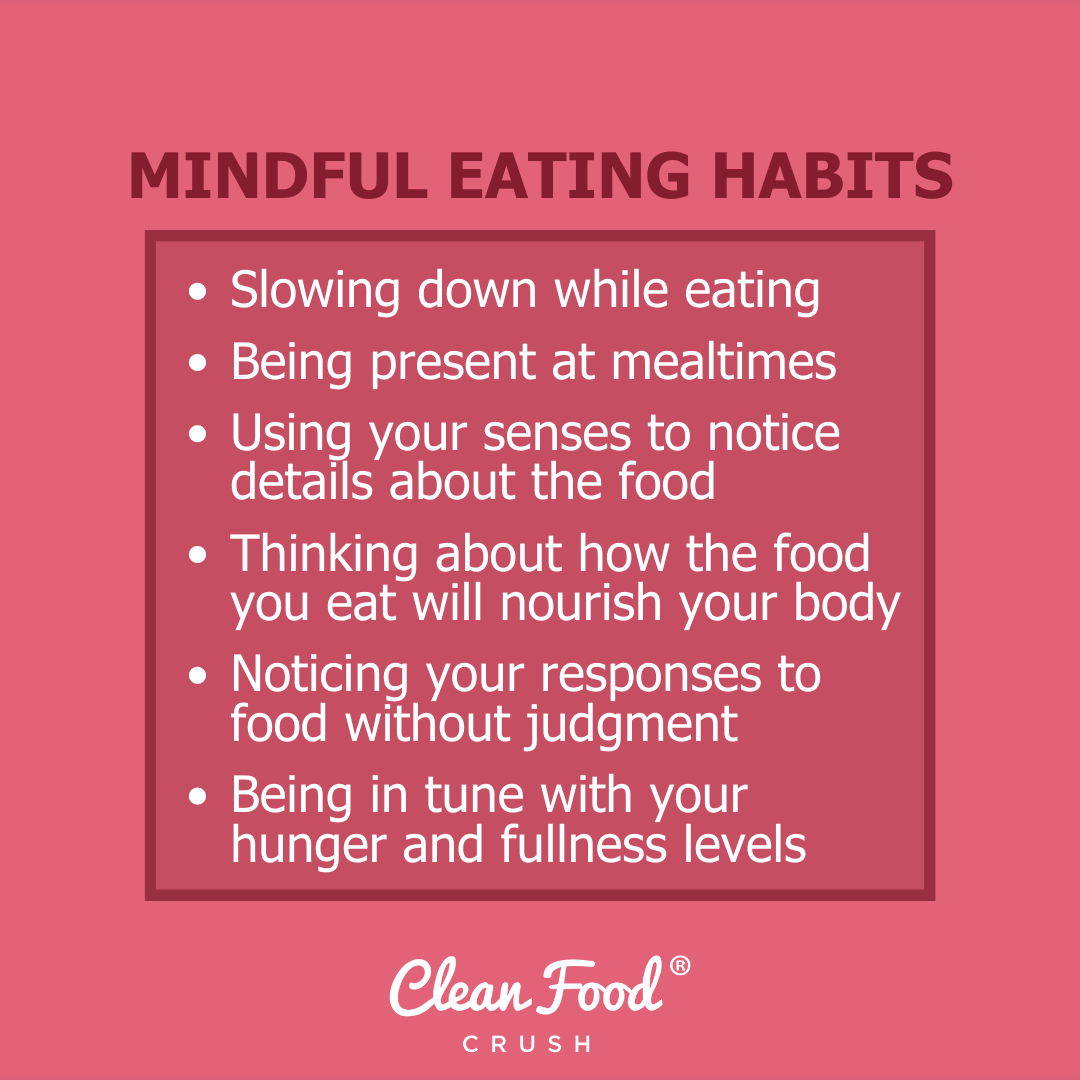
Here Are Some Of The Main Habits That Mindful Eating Involves:
- Slowing down and being present at mealtimes
- Using a variety of your senses (such as sight, taste, smell, and touch) to notice details about your food and environment
- Thinking about how the food you eat will nourish your body
- Noticing your responses to food, such as likes and dislikes, without judgment
- Being in tune with your hunger and fullness levels to guide you on when to start and stop eating

Even snacking and grazing can be done mindfully and in a healthy way. This Heirloom Tray is grazing heaven!
Someone who eats mindfully also acknowledges that there is no right or wrong way to eat. There is some overlap between mindful eating and intuitive eating (which you can read more about here), yet mindful eating involves more specific details about the method of eating.
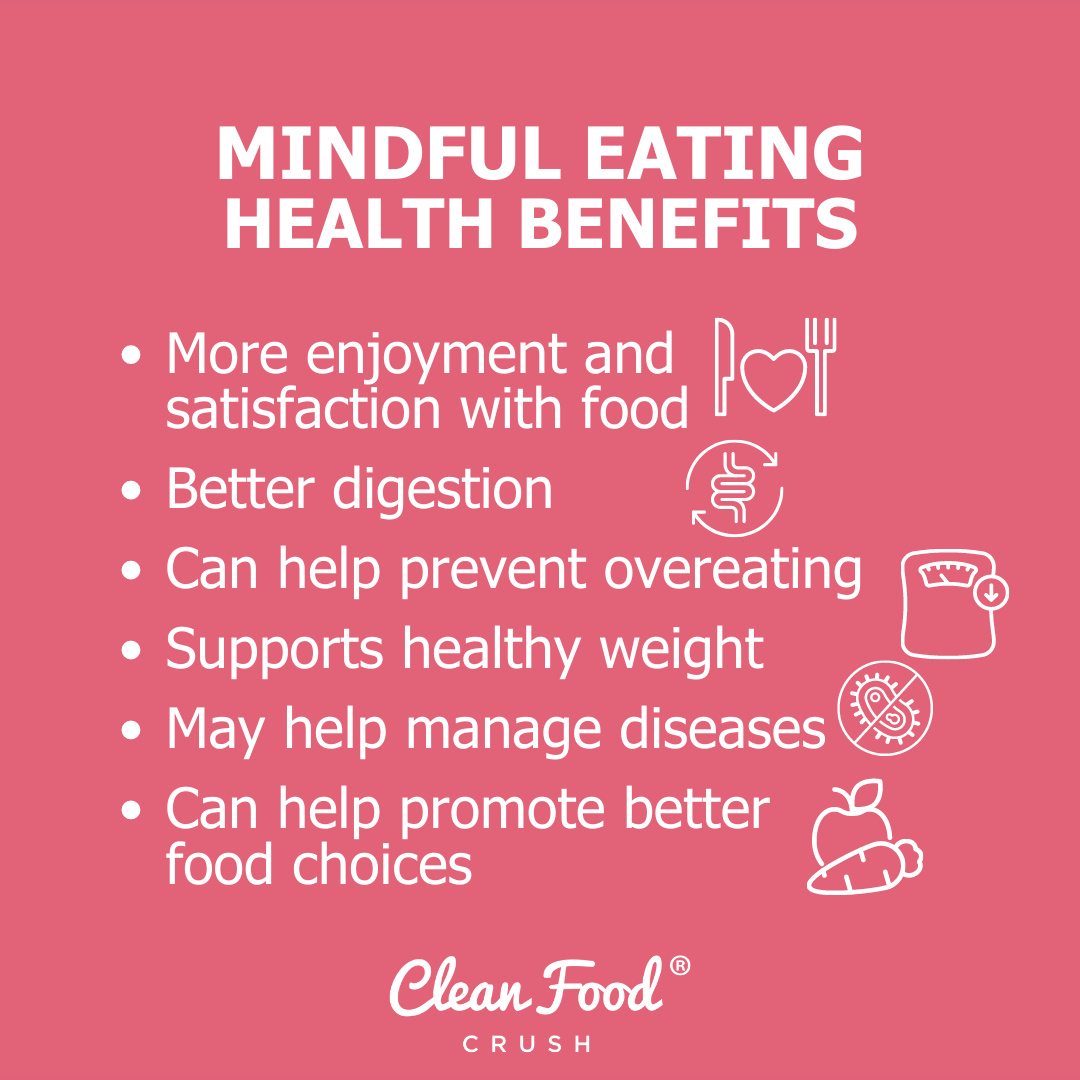
Health Benefits Of Mindful Eating
What you eat plays a massive role in your health. Yet the process of how you eat can make a big impact, too.
Some Of The Many Health Benefits Of Mindful Eating Include:
- More enjoyment and satisfaction with food. Paying more attention to your food and eating based on what you want almost guarantees more enjoyment.
- Better digestion. Eating more slowly gives your body more time to digest and absorb nutrients. It also allows for more time to produce adequate digestive enzymes to help properly break down food. On the other hand, eating quickly can bring more air into your digestive tract, leading to more gas and bloating.
- Can help prevent overeating. Slowing down and being more in tune with your fullness levels can prevent overeating.

Meal prep relieves your mental load at stressful times by getting the work done ahead of time. Check out these Roasted Veggie + Quinoa Bowls for serious energy and nutrition.
- Supports healthy weight. Mindful eating may naturally lead to weight changes (either higher or lower) that align with where your body naturally wants to be (a concept called the set point theory). For those at a higher weight, mindful eating may promote gradual weight loss, while it may promote slight weight gain for those who may be underweight.
- May help manage diseases. The Mindfulness-Based Eating Awareness Training program was developed to support diabetes self-management and is associated with positive outcomes for those who follow it. Mindful eating may also benefit those dealing with things like cancer, heart disease, and others.
- Can help promote better food choices. People who eat mindfully are less likely to “graze” throughout the day or grab food just because it’s convenient. Mindful eaters may be more likely to prepare food at home using fresh ingredients. This can lead to an increase in healthier foods like fruits and vegetables, whole grains, nuts, and seeds and a decrease in highly processed foods that are nutrient-poor.
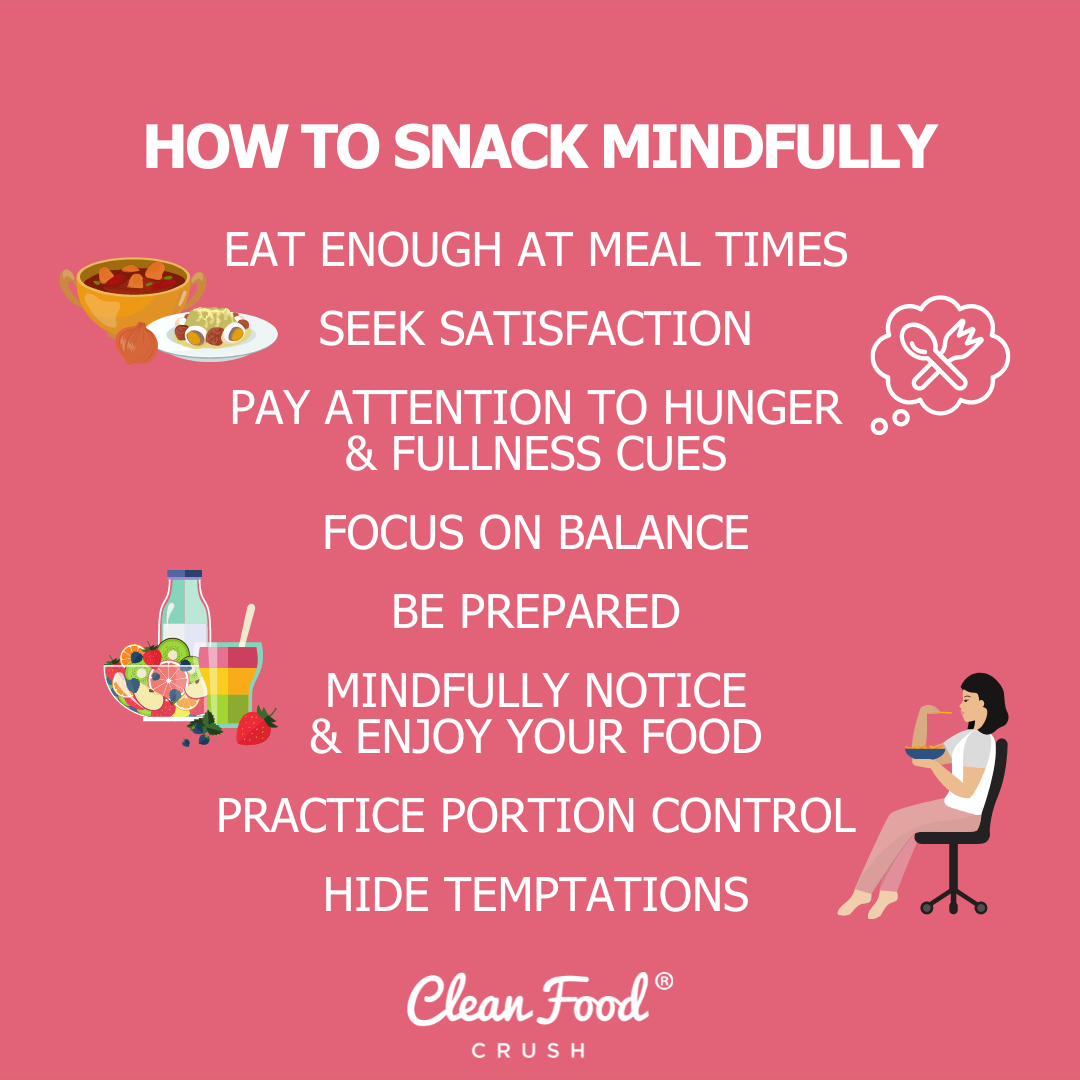
How To Eat More Mindfully
As mentioned, mindful eating means bringing more awareness to the eating process.
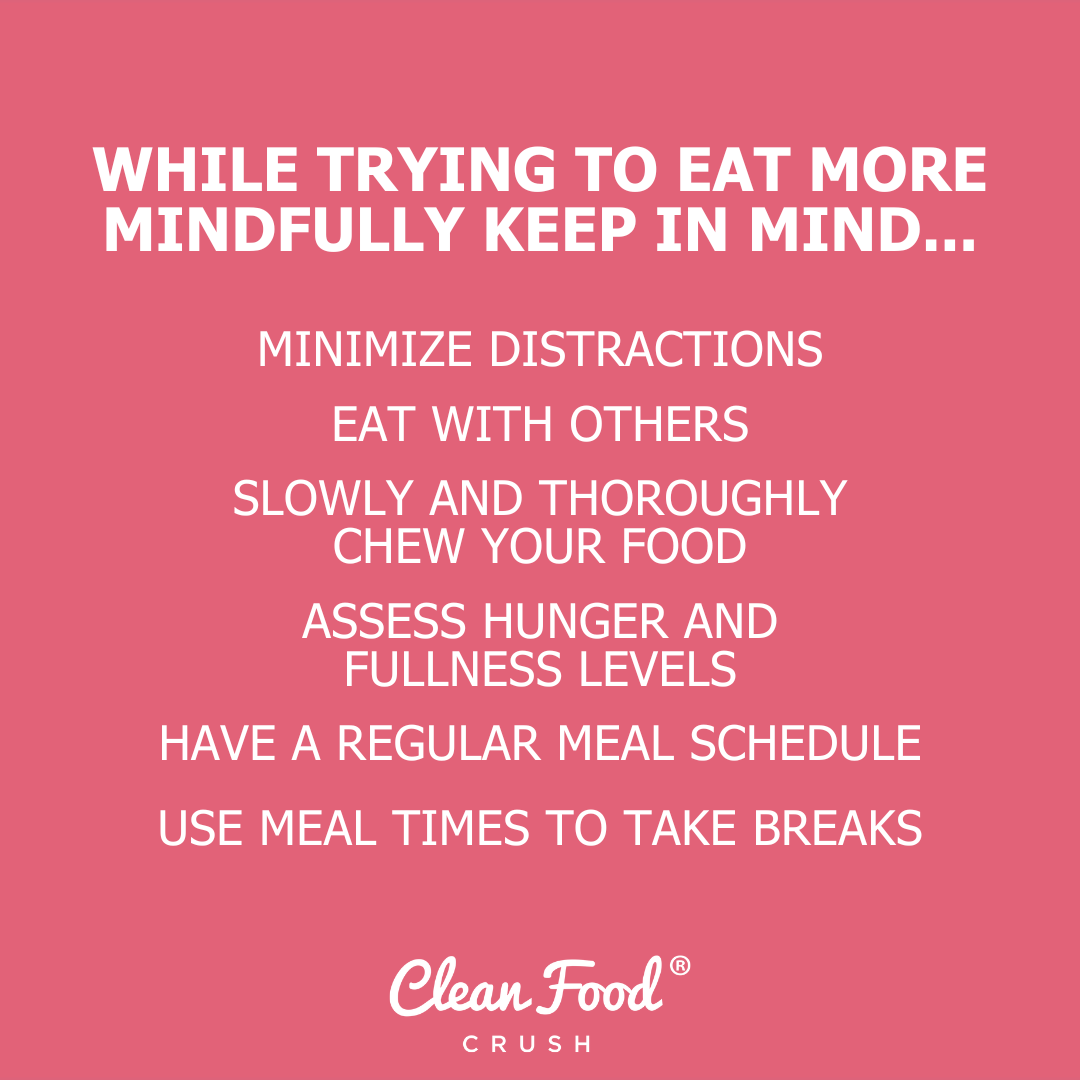
Here Are Some Things To Keep In Mind When Trying To Eat More Mindfully:
- Minimize distractions. Distractions can come in all different forms but may include your phone, TV, reading material, music, and more.
- Eat with others. While eating with others may initially seem like it would be a distraction, this is something that can naturally cause you to slow down while eating.
- Chew food slowly and thoroughly. Focus on the act of chewing and pay attention to how the food tastes and feels in your mouth.
- Assess your hunger and fullness levels. Use these as a guide for when to start and stop eating. However, also acknowledge and accept that sometimes you will need to eat before you are completely hungry (such as during a scheduled lunch break). Also, recognize that complete fullness may not set in for up to 20 minutes after you’re done eating, so consider allowing a little extra space.

Craving Flavor? Keep energy boosted and tastebuds happy with this Teriyaki Beef Stir Fry! Yum!
5. Follow a regular eating schedule. This involves 3 meals and 1-2 snacks throughout the day for most people. Ideally, these eating times should be spread out as evenly as possible throughout the day. This helps prevent you from getting overly hungry (and likely making less-healthy food choices as a result). It also helps build trust within your body that you will consistently supply it with food, which can support an active metabolism. I talk specifically about mindful snacking in this post.
6. Use meal times as an opportunity to take a break. No matter how much you have going on, there is always time to eat. A good rule of thumb is to aim for about 20 minutes per meal, but this will depend on the meal.
One last important note: mindful eating is not something you have to perfect. It’s not an “all or nothing” concept that you either implement entirely or not. There are benefits to implementing even just one aspect of mindful eating regularly. With practice, you may find that you naturally start to implement more, and the process gets easier and more part of your regular routine.
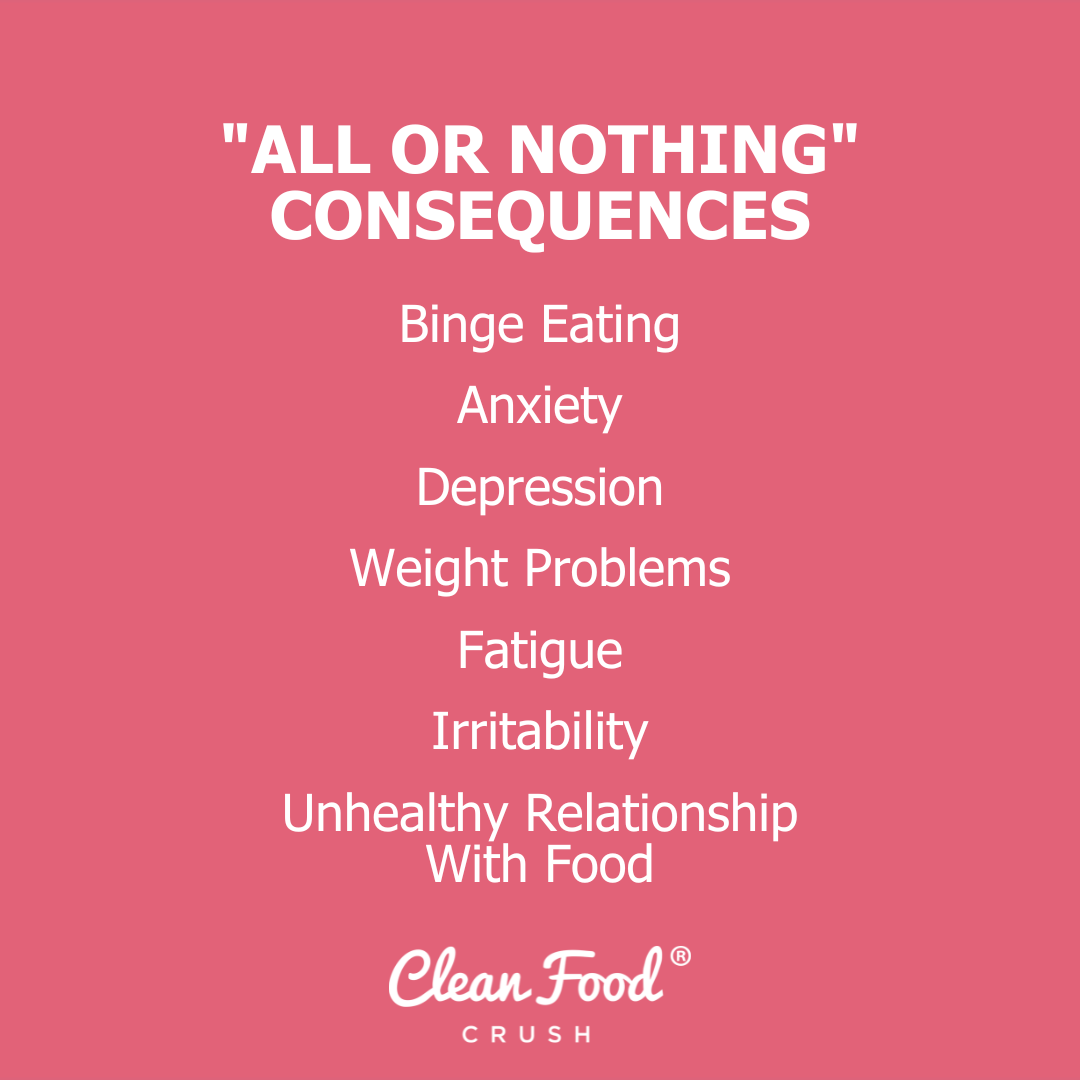
In Summary
Health is about more than just what you eat. Mindful eating, which involves how you eat, can play a significant role in your health. It takes practice to become a mindful eater, but any and all effort counts. As it is with creating most new habits, choosing steps that are realistic for you, to begin with, is the best way to create sustainable change and reap the most benefits.
NOTE: While the information in this article will help you with mindful eating, information alone isn’t enough to make a change.
If you require more support with eating healthy meals, answers to your questions, and accountability to your goals, we have created the 30-Day Clean Eating Challenge.
Within our program, you will learn how to eat clean meals on a regular basis without driving yourself nuts. Learn about how you can join our next 30-Day Clean Eating Challenge, and receive our current seasonal bonuses here.

















